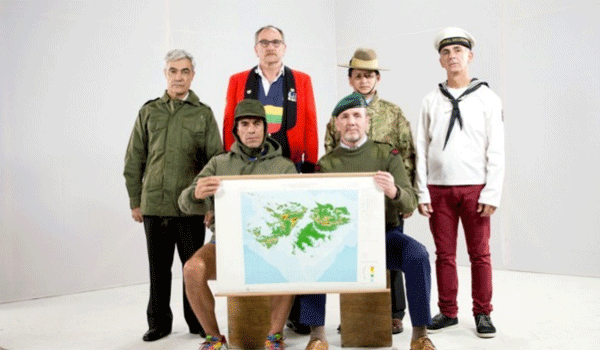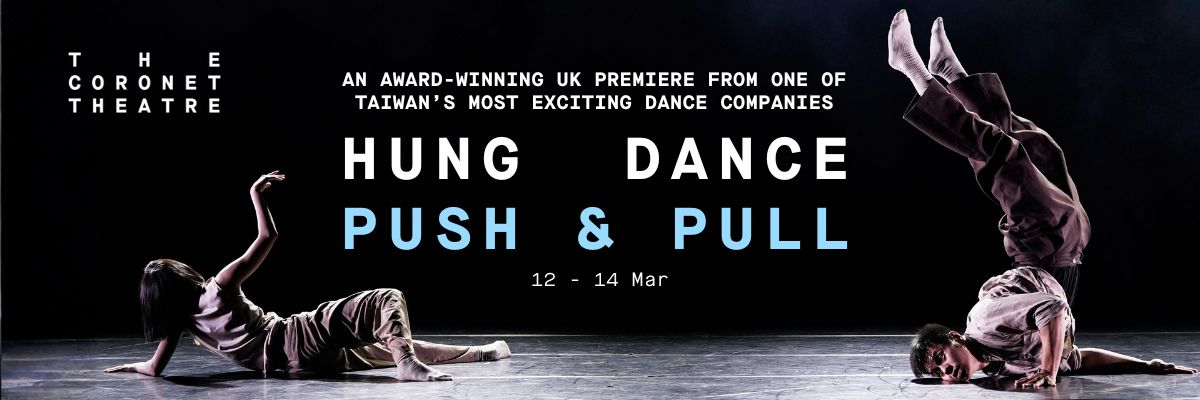When Lola Arias first started making theatre, in 2001, she did it the conventional way: she wrote a play, cast some actors, directed the show, bingo. Five years later, around the time she turned 30, she started work on a trilogy that inspired a full-scale rethink. Needing a baby for one of its texts, she invited an actor to work on stage with their own one-year-old child. Instantly Arias was struck by the “reality effect” of having a human on stage that wasn’t acting, simply existing: and so began a series of experiments “exploring the boundary between fiction and reality”.
One of those experiments, El ano en que naci (The Year I Was Born) was an unexpected highlight of London International Festival of Theatre 2014 (LIFT). Unexpected because it sounded so morose on paper: made in collaboration with people (actors and non-actors) born into the Pinochet dictatorship in Chile, who re-enacted scenes from their parents’ lives, it put the children of military police side-by-side with the children of people who resisted the regime. It could have been a miserable night, heavy with recrimination, because some of those parents had been imprisoned and even killed for their beliefs, but Arias’ spry direction kept inevitably depressing details balanced with humour and admirable complexity.
The piece she brings to LIFT this year – a world premiere – similarly brings together people from opposite sides of a divide: men who fought over the Falkland Islands, or Malvinas, in the brief war of 1982. Once again, it’s not an obvious sell: chances are, anyone reading this in the UK barely remembers that war. But Arias, herself Argentinian, was five when it happened, and grew up being told that: “Malvinas is a big national cause. At school you learn about your country with Malvinas included, you learn the arguments why we are claiming for them, you learn a march about the Malvinas at school.” If anyone can make this disjunction riveting, Arias can…
Run Riot spoke to Arias soon after she landed in London for the final days of rehearsal and tech at the Royal Court, when she was still fazed by jetlag, to talk about memory, ideology – and the tricky business of remaining neutral.
Maddy Costa: What made you want to make Minefield?
Lola Arias: It started in 2013, when LIFT invited me to participate in an event called After the War. The Malvinas war was the only one Argentina fought in the 20th century, so I decided to interview its veterans, and I had one idea: I wanted them to do a re-enactment of a story of one memory of the war in the places where they work or go every day. Like a flashback. We did this in a video format, and it was really interesting, because in Argentina, the big majority of the forces were conscripts, so they had a life after the war, as lawyers or athletes or opera singers. So that was the starting point. We showed this video in Battersea Arts Centre and started talking about how it would be so interesting to do the same with English veterans. Then I came up with the idea of making a play with English and Argentinian veterans together, reconstructing their memories.
MC: What kind of memories did they re-enact in those videos?
LA: In most cases it had to do with death: facing death, seeing someone die. One veteran talked about the sinking of the Belgrano, where many people died and he survived, another guy talked about a bomb explosion where he almost died. Those extreme moments are the moments that stay in the memory.
MC: What’s your memory of the war?
LA: I was five so I have no real memories – but you grow up with this idea that we lost something, and we have to claim it. It was interesting for me to realise how little you know about the Falklands and about the people who fought there: you just have this cause inside your brain but you don’t know why it’s so important for us. And then you realise it’s connected with our history, and that this is a big wound for us.
Whereas for the British soldiers, they just fought: they don’t have a political point of view on the subject. You try to go further into the political consequences of what they did and what it meant and you see that they are not interested in that. Most of them say they don’t even vote. It’s their profession: they fought for their country and it was the right thing to do.
MC: I really struggle with that: war for me is never the right thing to do, and so my sense is just of it being meaningless.
LA: For them, they did it for their country, they did it for the queen, they did it for the people: for them that’s meaningful enough. But it’s also interesting because you realise that the military career builds up something which is very singular and very ethical – just not in that sense that we think about it – which is a proudness: I take care of my buddies, I will give my life for the others. They really sustain these beautiful ideas about humanity.
This happened in this process, too. The most important thing in this kind of process is that the group brings the support: you know you’re alone facing your own ghosts, but you see that there is a group facing the same process, so in a way you feel supported by the others. They took care of each other, and that was very important for all of them. Which is also interesting because none of them speak the other one’s language, but somehow they understand each other, don’t ask me how.
MC: When you’re working in the middle of opposing groups, how do you remain neutral?
LA: I don’t know if I’m able to be neutral, to be honest. I don’t know if it’s possible at all. But I try to be very receptive to what is bothering them – because the people themselves show you where to go. If you are receptive, you will hear when they start to be disturbed: are we talking about our dead? And then the other side: are we showing ourselves defeated from the beginning? They show you when you are going too much on one side or the other – and even sometimes when I think, no, he’s wrong, I keep on thinking maybe there is something where he’s right and we should put more attention to that. I think that’s the most important thing for me, just to keep on hearing them.
MC: What difference does an ongoing relationship like the one you have with LIFT make for you?
LA: I’m so happy LIFT trusted this project because it was a very long and complicated process to get to the point where we are now. Just getting in contact with the veterans was a big challenge, and then to convince them to go to Argentina for two months to rehearse was a really big thing. Without LIFT’s support it wouldn’t be possible.
MC: What are you working on next?
LA: I’m doing a play with women, based on a woman who is 84 now, who wrote a 400-page book about her life that starts when she was born Jewish in Berlin. She escaped to Australia and became a communist then went back to the GDR and worked for the Stasi. This story will be the central story and then there are other women from different generations that will be representing her in different moments of her life but also telling their own story. So it’s about women and politics and especially the possibility of creating a socialist state.
MINEFIELD
7.30pm, 2-11 June
Royal Court Theatre
Tickets and info: liftfestival.com

